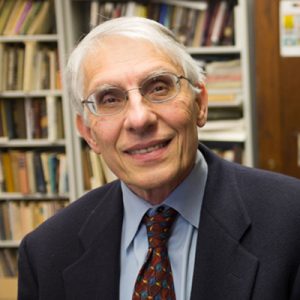In a twist on “Three Books” to honor the 50th birthday of hip-hop, Professor Jeffrey Ogbar sounds off on one classic, one essential, and one of his favorite hip-hop albums in an article for UConn Magazine, “Happy Birthday, Hip-Hop.”
In addition to being a UConn history professor, he is also the director of the Center for the Study of Popular Music. He has written and taught extensively on the role of hip-hop in the United States with his book, Hip-Hop Revolution: The Culture and Politics of Rap, and his popular course, “Hip-Hop, Politics, and Youth Culture in America.”






